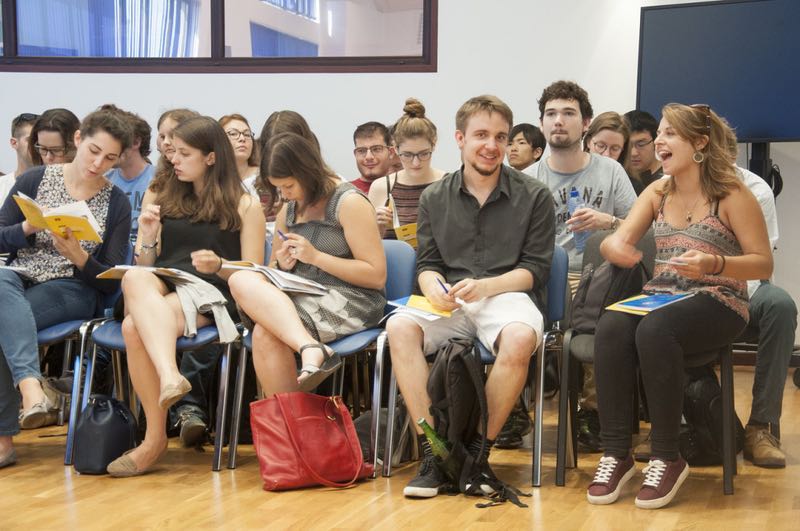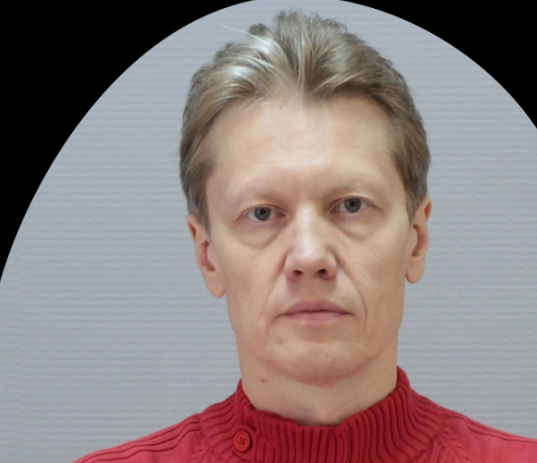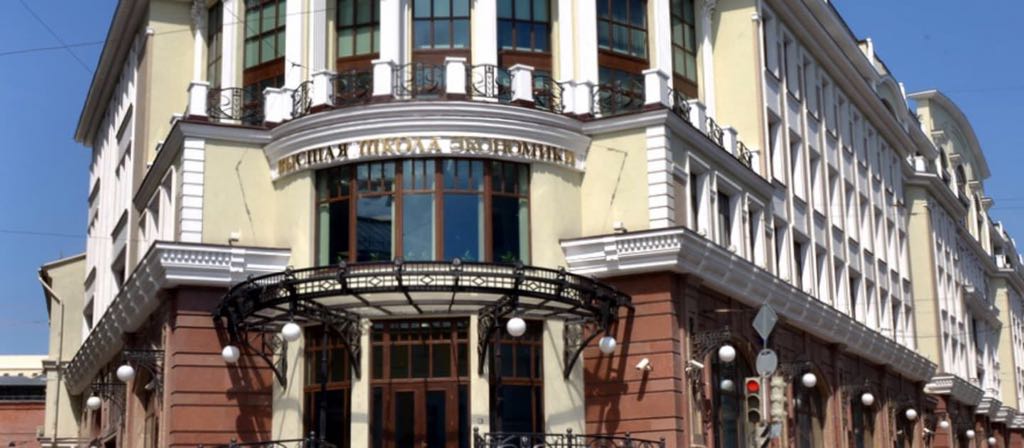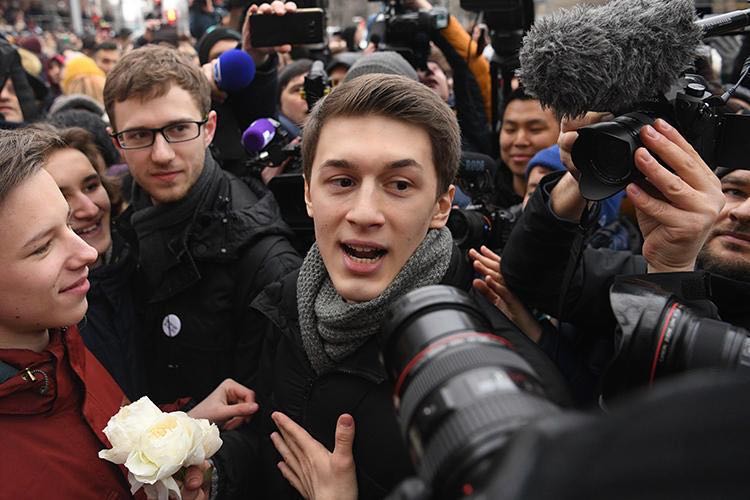Scientists and other academics in Russia have reacted with indignation at proposed State Duma amendments to the law 'on education'. The law will expand the definition of an educational activity and will require academics to request permission to engage in foreign cooperation. The lawmakers claim it is necessary to avoid 'negative foreign interference in the educational process'. The law will enter into force on 1 June if approved by the Federal Council and President Putin.
 Students of the Moscow Higher School of Economics
Students of the Moscow Higher School of Economics
The scientific community has found itself under growing suspicion in recent years. In 2018, the FSB investigated a joint-international venture between Roskosmos and a British-American partner on the basis of an espionage risk, and arrested space expert Viktor Kudryavtsev for sharing information with a Belgian institute for Fluid Dynamics. In 2020, Ivan Safronov, former investigative journalist, was arrested suspected of treason. As a specialist in military technology he switched jobs to Roskosmos, but after a few months he was arrested on vague charges that worried many in the journalism community. He is being tried behind closed doors. Now the Duma broadens its grip on education, warning against foreign influence as well.
What the Bill entails
In November last year, a group of senators and deputies led by Andrei Klimov proposed a draft law seeking to amend Russia’s law 'on education', seeking to fire teachers who incite hatred or extremism, or undermine constitutional order. They reasoned that Russia was vulnerable to foreign interference and propaganda activities that sought to undermine order and rewrite national history. Deputy head of the State Duma Committee on Education and Science, Lyubov Dukhanina, supported the proposal, saying educational activities 'urgently need to be regulated' owing to high demand for knowledge.
As a result of Klimov’s proposed amendment, the concept of an 'educational activity' will be expanded to include activities outside institutions. The amendments will prohibit to incite social, racial, national, or religious hatred in an educational setting. As a result, all activity in popularising science, even non-institutionalised, will fall under the remit of the Ministry of Education.
State media outlet TASS explained that by September 2022, the law would be backdated to agreements signed before the bill. They say though, that the amendments will not affect the training of foreigners.
Reaction from Academics
After the amendments had first been proposed, Sergei Popov, a leading researcher at Moscow State University, criticised the vagueness of the definition of education. He explained that the wording allowed websites, YouTube channels, and podcasts to all fall under the new criteria. He considered it inevitable that some of those involved in popularising science would be scared off by the fear of applying for government approval and the threat of illegality.
 Scientist Sergey Popov started a petition against the bill
Scientist Sergey Popov started a petition against the bill
Popov started a petition calling for the withdrawal of the amendments which has gained over 240,000 signatures. The Presidium of the Russian Academy of Sciences called for the withdrawal of the proposal too, citing the harm it could cause to the popularisation of science.
Additionally, 1.703 people signed a declaration from 'scientists and popularisers of science' describing the public advancement of science their 'civic duty'. They call for the removal of the bill and say they will refuse to abide by it should it be passed.
In February, science journal Nature reported some of the uproar from academics, quoting Popov who criticises the threat of having to 'beg for allowance' in order to invite foreign lecturers to a summer school. According to Alexandra Borisova, co-founder of the Russian Association of Science Communication in Moscow, the amendments would violate free speech and is 'blatantly contrary to efforts to improve scientific literacy'.
Following the third reading to the amendments on 16, March, Popov told Meduza that all bans on extremism and hate speech are already covered by existing laws. According to him, the proposal shows that the authors 'simply do not consider educational activity to be something important, essential, or useful'.
Andrey Konyaev, of the scientific website N+1, told Meduza he believes the law is driven by 'ideological panic' and the scope cannot be known until bylaws are written to guide enforcement.
The subjectivity of 'anti-Russian propaganda' worries Stanislav Kozlovsky, executive director of Wikimedia-Russia. He predicts the law will work 'randomly and selectively' since policing everything would be impossible, especially on websites like Wikipedia.
Free speech at universities
Andrei Klimov’s proposed amendments followed separate academic controversies in 2020. At the start of the year, Moscow Higher School of Economics (HSE) amended its internal regulations to prevent any connection to the university being used during political or socially divisive activity. The changes also prevented employees making comments 'beyond their expert or analytical positions', and stripped student-run media of their status as a student organisation.
Representatives of the university spoke to Meduza, claiming that the aim was to separate students’ views from those of the university, and that there was no ban on making political statements. Vice-rector Valeria Kasamara denied that there was any connection to the massive protests against election fraud of summer 2019, in which many students were involved.
However, HSE Philosophy professor Viktor Gorbatov told Meduza that it was obvious who the move was designed to target. He questioned whether the rule would affect someone like Kasamara, who ran for city council under her university connection previously, or whether it would only be 'mere mortals'.
Gorbatov argues that it is impossible to avoid controversial statements in scholarly activity, especially socio-humanities work such as his. He claimed that HSE had been sending messages to its faculty with dissenting views since autumn 2019, and that 'several talented teachers' left in December. He says they left without fully explaining why, although voluntary. They were mostly staff who had been involved in open letters on issues such as the arrest of student Egor Zhukov.
 After 2019 rules became stricter at the Moscow Higher School of Economics
After 2019 rules became stricter at the Moscow Higher School of Economics
Egor Zhukov, a student at HSE and libertarian political blogger, was arrested in the protests of the summer of 2019, only to see his original sentence reduced to a suspended one following popular support. Zhukov is highly critical of the Kremlin in his videos released on YouTube, and even criticised the 'foreign agent' law in court, yet his views are controversial in their own right. In 2019 he released a video attacking feminism and has lent support to Jordan Peterson, a figure dubbed 'a purveyor of fascist mysticism' by his critics.
Elsewhere, in October 2020, Human Rights Watch published an article on the Russian Academy of National Economy and Public Administration under the President of the Russian Federation (RANEPA).
Prosecutors had ordered the academy to hand over information on students who participated in mass protests, all its international projects, and any activity that could be considered 'undesirable'.
 Student Yegor Zhukov was arrested during the protests of 2019 (picture committee of journalists)
Student Yegor Zhukov was arrested during the protests of 2019 (picture committee of journalists)
Human Rights Watch director of Europe and Central Asia, Hugh Williamson, explained in the article that the prosecutor’s order was designed to drive out those in academia, and notes the singling out of 'pro-American groups of influence' as a malevolent force.
A case of déjà vu?
The science community is no stranger to disagreement with the Russian state. In October 2015, reports claimed that scientists at Moscow State University (MSU) would have to submit their research to the state security services before publication.
Five months earlier, Russia had extended a 1993 law requiring FSB approval to publish scientific results with military or industrial significance to cover vaguely 'new products'. For articles to be checked by (largely monolingual) secret service personnel, scientists were required to translate their papers from the standard publication English to Russian.
Nature quoted biologist Fyodor Kondrashov’s view that 'all scientific output is being treated as potentially classified'. As a result, scientists were less likely to share information, and Kondrashov feared 'authorities will choose to apply this law selectively against their critics'.
Molecular biologist, and former MSU student, Konstantin Severinov argued that the vague law would mean implementation would depend largely on the administrators, and it would only harm the government’s goal to strengthen their science industry.
The latest bill has passed through three readings to be approved by the President and Federation Council. The Presidium of the Russian Academy of Sciences is calling for a face-to-face meeting with the Council in a final attempt to persuade them against the amendments.
